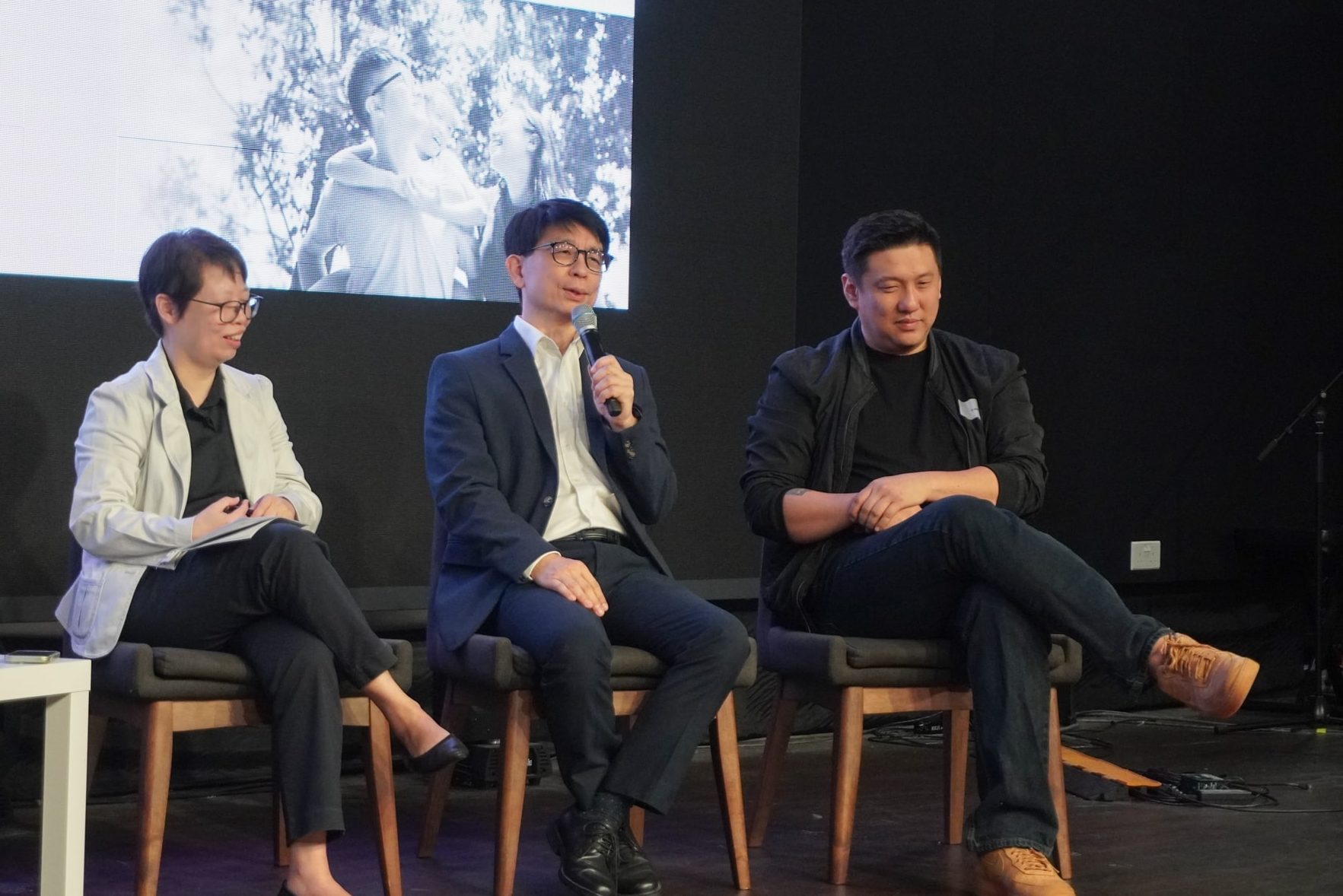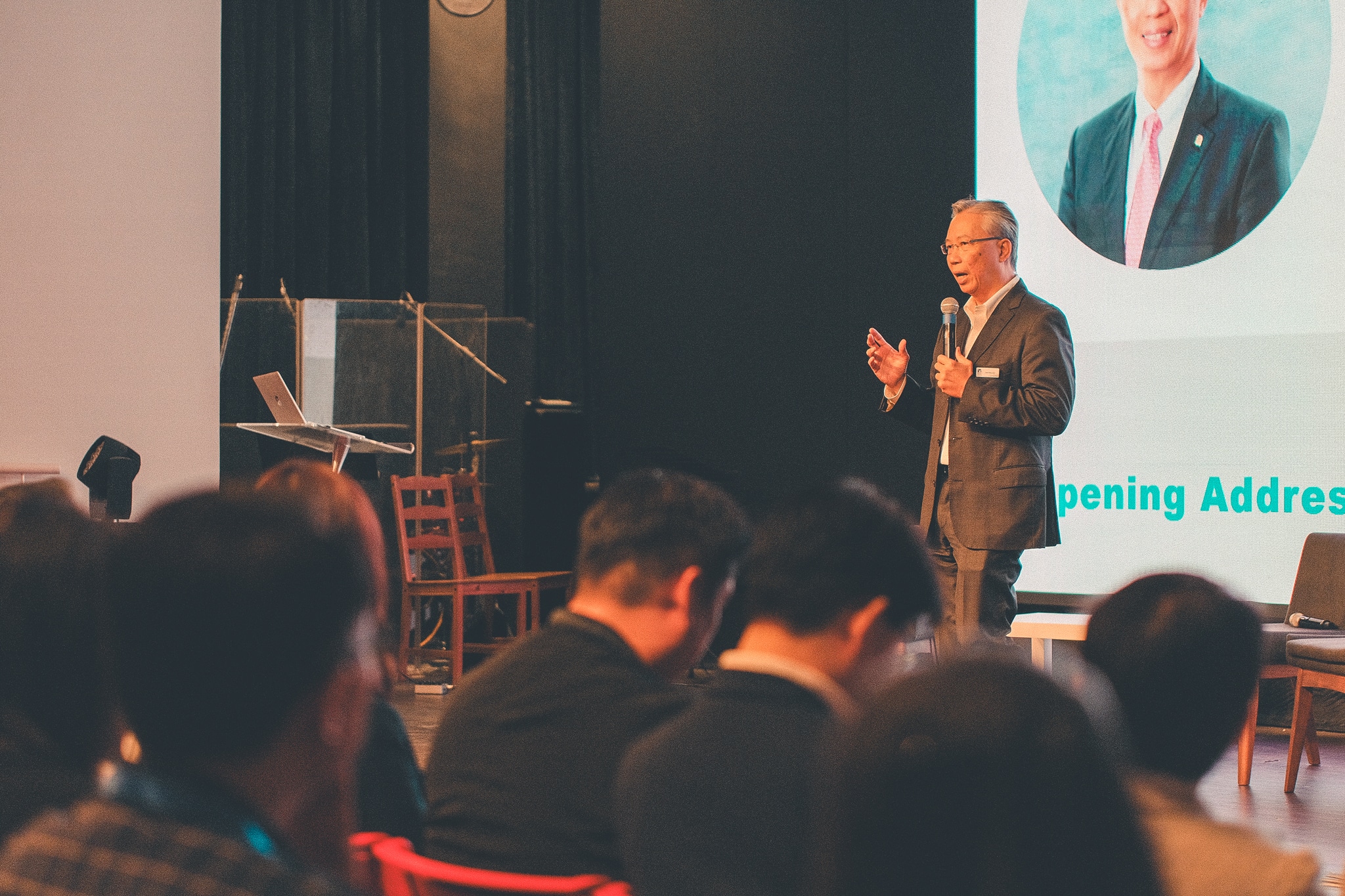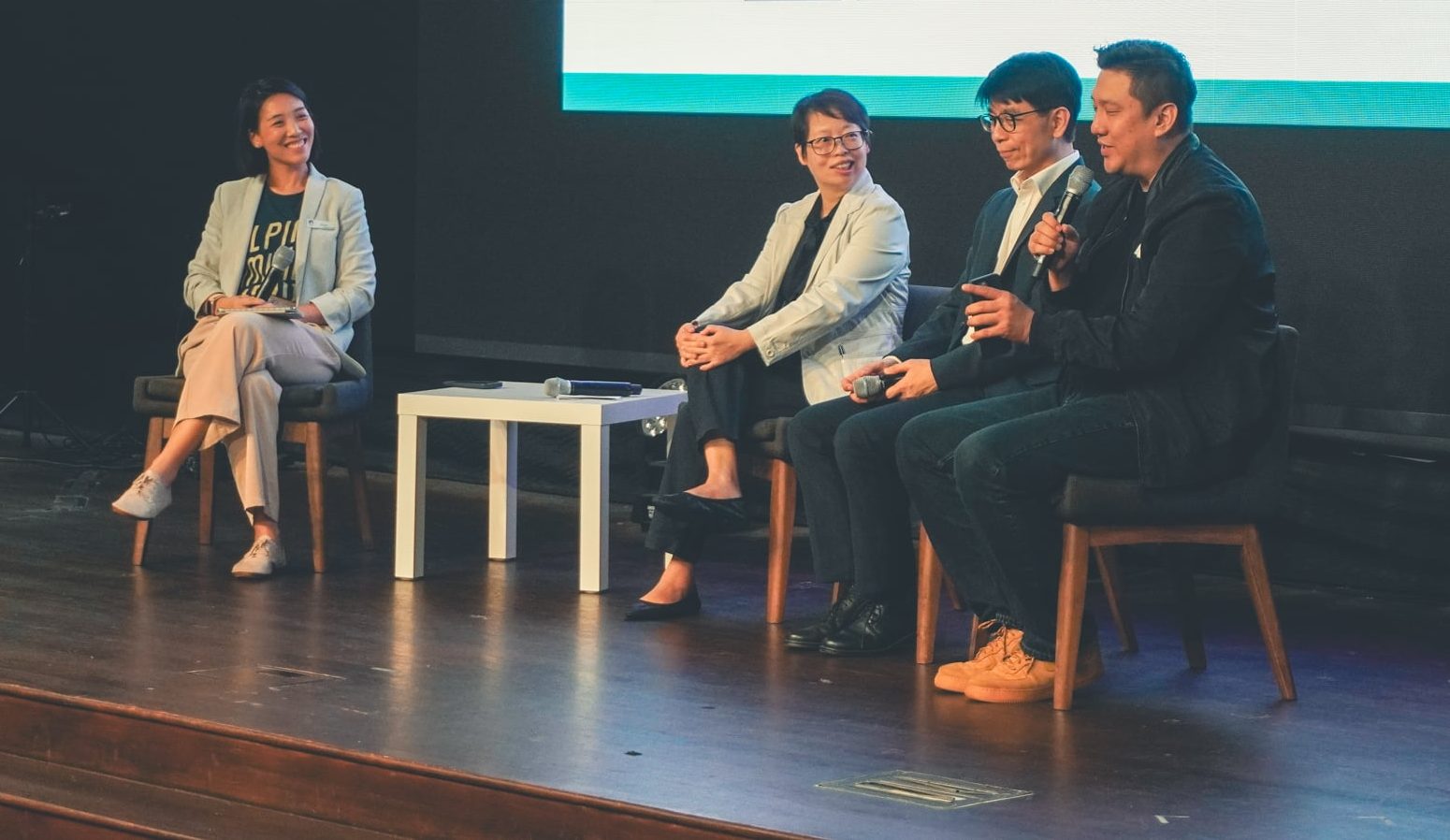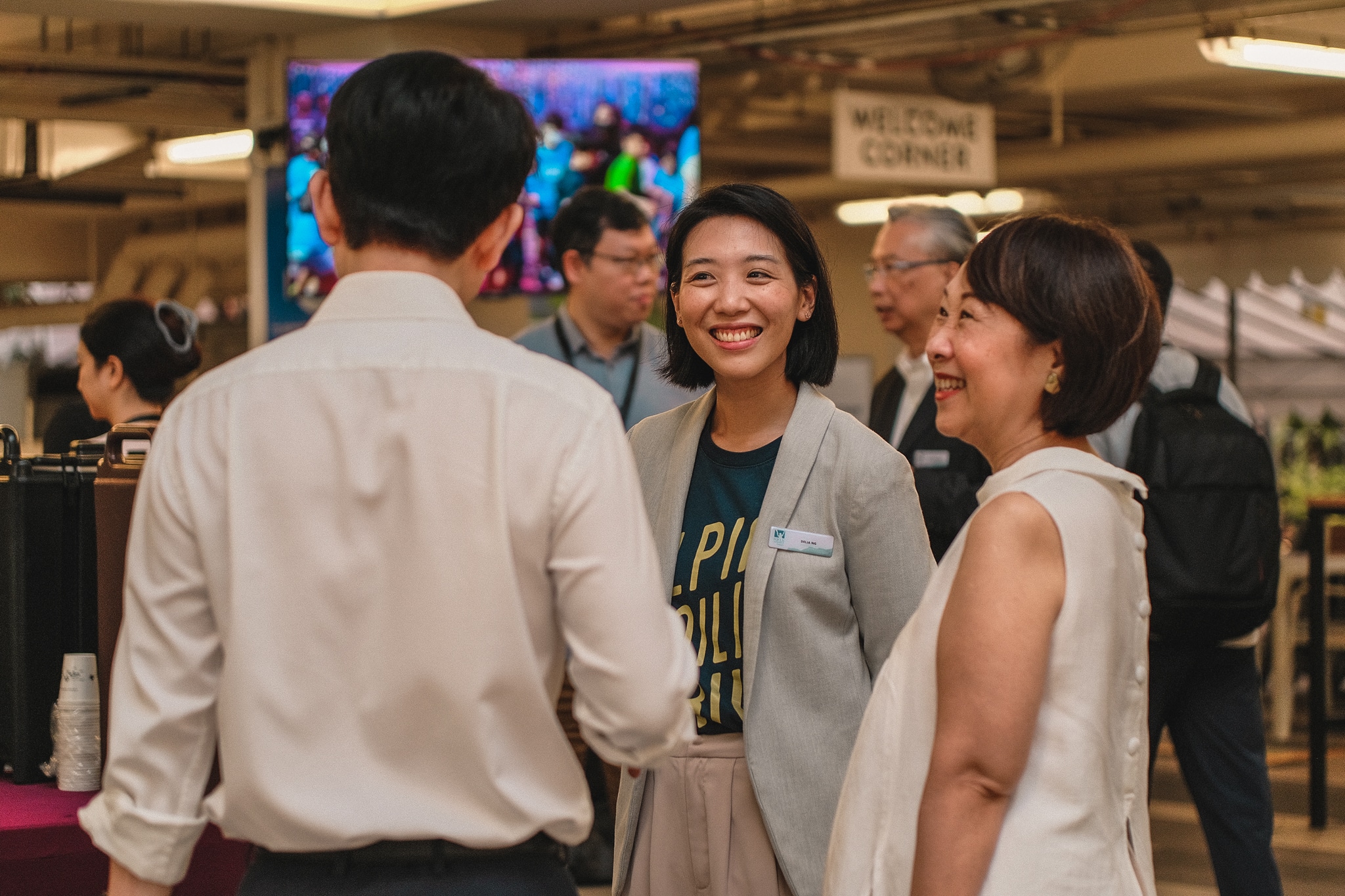What does it mean to be a missional family? Pastors and parents share at State of the Family 2025
by Gracia Chiang // February 25, 2025, 2:44 pm

How can families live out their faith in today's culture? Speakers at State of the Family give their take on the missional family. All photos courtesy of Focus on the Family Singapore.
If we are not even succeeding in our first mission field – our homes – then what hope do we have to reach beyond?
At State of the Family (SOTF) 2025 last Thursday (February 20), speakers dived into the theme of Missional Families, with discussions ranging from the health of marriages to how Christian families can transform culture.
But the sessions also explored this question: Before families look outward, how many parents realise that their first mission field are the children within their homes?
Organised by Focus on the Family Singapore, SOTF is an annual gathering where the latest trends on family are shared. This year, 207 participants representing 89 churches and organisations gathered at Church of Our Saviour.
For this first article, Salt&Light will focus on key highlights from SOTF’s first plenary titled Who is the Missional Family?.
Moderated by Focus on the Family Singapore’s CEO, Delia Ng, the panel featured insights from these speakers:
- Venerable Daniel Wee (Senior Pastor and Vicar of Church of Our Saviour, Archdeacon of Singapore)
- Pastor Ian Toh (Founding pastor of 3:16 Church)
- Dr Suzanne Choo (Educator for more than 20 years)
They shared these four distinguishing marks of missional families.
A missional family engages with culture
“The missional family is characterised by how they respond to today’s cultural headwinds,” said Dr Suzanne, who is also a parent of a 10-year-old.
But to respond, one must first know what is culturally trending.
“A lot of popular songs actually reveal broader cultural trends,” she pointed out.
For instance, the Billboard hit APT. by Rosé and Bruno Mars is a symptom of something deeper in society and is quite telling of how culture views relationships today.

At the opening address, Focus on the Family Singapore’s board co-chairman, Choe Peng Sum, also highlighted results from the pre-event poll. The “disconnect between faith and modern day issues” was cited as the biggest challenge that the Church faces today.
“We often look at visible culture, what’s obvious,” said Dr Suzanne.
But parents need to focus on the invisible culture, the value system behind media content that is being consumed today, she urged.
“This invisible culture points to the zeitgeist – the spirit of the times, the spirit of the age. We need to be discerning. What is the spirit that is being preached?”
Dr Suzanne identified three prevailing trends – postmodernism, wokeism and neotribalism – that all have something in common.
“They’re all about the idolatry of the self – my truth, my cause, people like me.”
“Values are not just taught and caught. They’re also sought.”
Observation must then be followed by conversation.
“Values are not just taught and caught. They’re also sought,” she emphasised.
“Parents, we need to seek opportunities to talk about values with our children.”
If they are listening to a popular song, find out why they like it and what they like about it.
“Try to understand where they’re coming from, then find ways to bring in the Gospel, to bring in the biblical perspective.”
A missional family highlights what is good
Instead of reacting in fear against the bad, the challenge is to nurture in faith, pointing our children to what is good, said Ps Ian.
“A missional family is a family that leaves a legacy,” he elaborated, sharing that he and his wife pray that his four children aged 12, 18, 20 and 28 will all own the faith for themselves.
“To leave a legacy, we really need to help (our children) to see the truth, the beauty and the goodness of God.”
When they are attracted to these qualities, it would develop in them
a desire for God, he explained.
“Truth has a confronting nature, while beauty has an attractive nature.”
“You cannot mandate desire; desire needs to be cultivated. It’s like growing a garden,” said Ps Ian.
“We can create the environment, but we cannot mandate their faith.”
After all, you cannot pull the plant in the direction you hope it will grow.
“You just need to provide the light, the water, the nurture, the nutrients, and pray that the growth will come,” said Ps Ian.

“We can water and plant. Ultimately, it’s God who will give the increase,” shared Ps Ian Toh (far right).
Observing that parents tend to focus on only imparting truths, he reasoned: “But truth has a confronting nature, while beauty has an attractive nature.”
Sharing a personal example, Ps Ian revealed that he recently opened up about his past struggles with pornography during a conversation at home.
“I want to give my children the licence and the liberty to know that in the safety of a home, you can share. That this home is not perfect,” he clarified.
“We have a perfect God. We have a gracious God. We have a wonderful God that even when we fail and fall, He’s there to hold us. That’s the beauty.”
At the same time, we can hold out the truth “that pornography, lust and sin are not good, that there is a better way of life”.
Do we believe that God is all-loving and all-knowing? If so, then we can trust what He says in His Word, declared Ps Ian.
“Ultimately, that’s the test of our faith in the Lord. Do we believe He is full of truth, full of beauty and full of goodness?
“If we do believe, that’s where our faith must rest upon.”
A missional family assigns value differently
“We live in a very pragmatic and competitive society. Without being conscious of it, we can bring the language of competition into the home,” noted Dr Suzanne.
Describing this as “instrumental language”, she explained that this can surface in the way that spouses or parents and children talk to one another.
“We value our spouse or our children in terms of how useful they are. For example, if the husband is not contributing financially, we judge them based on this rather than their God-given identity.”
But we want to re-orientate our children’s mindsets away from seeing people as useful to them, to seeing people as valued individuals.
One way is to avoid speaking “the language of instrumentality”, suggested Dr Suzanne.
- “Have you done your homework?”
- “What did you do today?”
Instead of only asking our children these questions, how can we have more spiritual and less work-based conversations?
Instead of spending 90% of our time on instrumental conversations and setting aside 10% of our time at the end of the day to engage in spiritual conversations, what if we flipped the script?
What if most of our conversations were spiritual rather than instrumental?
“We don’t invest enough time because life is just so busy.”
Sympathising with families whose conversations are focused on pragmatic issues, Ps Daniel surmised: “Could it be because we ourselves lack the space and depth to think very much?
“For many people in Singapore, that may just be the reality. They are just trying to survive, hand to mouth, and it’s not an easy situation.”
Perhaps the first step is to do some self-reflection.
“We just don’t invest enough time because life is just so busy. We don’t have time to sit down and ask ourselves what we ourselves want,” he said.
Recognising that having such meaningful conversations is new for today’s parents, Ps Daniel added: “I also think about our parents. They are a different generation… When we were growing up, nobody asked this type of questions.
“It’s a much bigger question – who we are as people, who we are becoming as people. Our values are also changing; our own expectations are changing and will continue to change.”
A missional family practises hospitality
Finally, becoming a missional family is also a call to look beyond ourselves. How can we be a people that models Christ to the world?
“In modern day culture, our families can be so self-centred,” observed Dr Suzanne.
Resources within the family are usually channelled towards members themselves, she said. For instance, the money we spend on tuition for the children.
But our families are what God has designed for us to fulfil the Great Commandment, said Dr Suzanne.
“The love of God and love for others are the ends, the ultimate purpose of what Christians should do… The family is the means to this end.”
Urging families to have a paradigm shift, she said: “The open family is one who learns to serve others beyond the family, who learns to welcome the neighbour, who learns to be missional.”

“We are called to be salt and light in the world,” reminded Focus on the Family Singapore’s CEO Delia Ng (centre).
Echoing these sentiments, Ps Daniel remarked that we are becoming increasingly narcissistic as a society.
“As humans, we’re quite naturally inclined towards some kind of narcissism or tribalism because maybe it’s baked into our survival instinct. It’s easy to feel stronger when you’re in one group,” he said.
However, “Jesus was not survival-centred… He died for other people.”
When it comes to loving our neighbour, “a lot of it goes back to discipleship from a very early age”, opined Ps Daniel.
“If you don’t deal with that at that point, when you grow up, you end up dealing with it superficially – by pretending, by being politically correct.
“So there’s no transformation; we only just learn how to conform to certain correct types of behaviour.”
“We have muscle wasting in this area of our life.”
Offering a practical tip, Ps Ian shared that perhaps the first step is for families to provide hospitality to Christians or people who are closer to them.
“When that becomes a little bit more natural, loving the world doesn’t seem so daunting,” he said.
Pointing out that the word “hospitality” in Greek carries the meaning of “making strangers family”, Ps Ian explained: “It’s a huge virtue in the ancient biblical world, which today is a lost art.
“We have muscle wasting in this area of our life. Maybe those are some of the places that we can start to develop that muscle.”
Sharing that churches can also model for families what it looks like to invest money and time to touch lives, Ps Daniel said: “Hospitality is an expression of love – and nobody disagrees with love.”
Whether it is taking the effort to find out what someone likes, or going out of your way to deliver a gift, “people respond to love and hospitality”, he added.
Reminding everyone that hospitality is not a “theological construct” but something that should be put into practice, he encouraged: “I’ll suggest that churches don’t need to preach more sermons on hospitality… Hospitality is something you do.
“How can we teach our church? You teach by doing, and you really have to do it.”
Look out for more of our coverage from State of the Family 2025, which features practical tips on what families can do to be more missional, as well as preliminary findings from Focus on the Family Singapore’s new Connect2 Marriage Assessment tool, which offers a snapshot of challenges that marriages are facing.
RELATED STORIES:
What do we need to do in our churches to engage Gen Alpha? We share tips from KidminSG’s panel
What is truth and how to tell when something is true: D6 Family Night
“We’re not grown-ups. We’re growing up”: The daunting privilege of raising godly children
Our kids are watching: State of the Family 2024 looks at the challenge of building strong marriages
We are an independent, non-profit organisation that relies on the generosity of our readers, such as yourself, to continue serving the kingdom. Every dollar donated goes directly back into our editorial coverage.
Would you consider partnering with us in our kingdom work by supporting us financially, either as a one-off donation, or a recurring pledge?
Support Salt&Light


